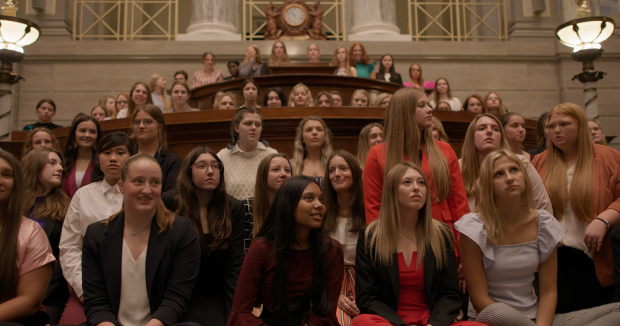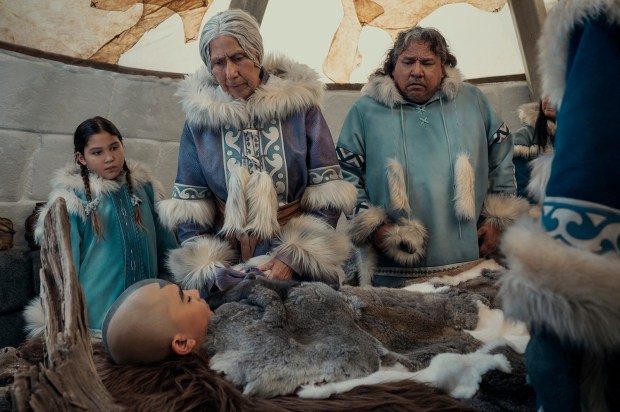I adore Andrew Roberts. We go back a long way. Once, on a boating expedition gone wrong in the south of France, we had a bonding moment almost Brokeback Mountain-esque in its bromantic intensity.
Roberts had hired an expensive speedboat for the day (as Andrew Roberts would) and we’d left very little time to get it back to harbour and avoid being stung for a massive surcharge. Problem was, the seas had got very rough and our anchor was stuck fast. We manoeuvred the boat this way and that to no avail. There was nothing for it. Someone would have to dive down to free it.
It wasn’t easy. The water was cold and dark, visibility near-zero, and the anchor was way below comfortable free-diving distance. Various, increasingly desperate efforts were made by our party. But only two of us got as far as the bottom. I remember it now, Roberts and I, wrestling side by side in the murk, knowing that the survival (well, almost) of our whole party depended on us. Then the pure elation as together we worked the anchor loose and were finally free to burst, gasping, to the surface. ‘Yes, he may be a bit effete and sleek,’ I thought. ‘But I’d have been happy to have him co-pilot my midget submarine on Operation Source…’
Since those early days I have watched, admiringly, as young Andrew has gone on to do quite well for himself — most recently with his hugely acclaimed biography Napoleon the Great. Roberts’s thesis is that, far from being an almost Hitler-like dictator, Napoleon was in fact utterly fab and we should all admire him as much as Roberts has done since the age of ten. His new three-part BBC2 series is part of this rehabilitation exercise.
Roberts makes a charming and persuasive advocate. He has walked most of Napoleon’s 60 battlefields; he’s read the letters to Josephine (from which poor Napoleon emerges as a pathetic, needy husband — forever pleading for some wifely sympathy or interest that she’s generally far too busy whoring herself elsewhere to provide); and he’s been all the way to St Helena and personally tried the Emperor’s deathbed for size.
What I’m less convinced by is the premise that Napoleon’s reputation needed rescuing. Haven’t we all known for ages that Napoleon was one of the most brilliant and inspirational generals ever? Isn’t it reasonably comprehensible, without too much special pleading, that his use of grapeshot against civilians during the French revolution and his massacre of 4,000 captives on the beach at Jaffa were a function of the exigencies of war, rather than Hitlerish nastiness?
But also isn’t it pushing it a bit — as Roberts almost treasonably did at one point — to be explaining away Napoleon’s rampant looting of Italy’s art treasures by suggesting that well, hey, it was just the same for half the stuff we’ve got in our own national collections? Citations needed, I’d say.
As for Roberts’s use of the word ‘progressive’ to describe Napoleon’s politics — without a hint of heavy irony — well, I’m sorry, but for me that was just one step into the enemy camp too far. For God’s sake, man! What has all that time in the salons of New York done to you?
Obviously, though, I shall eagerly be watching the next two episodes, first, because Roberts’s enthusiasm for his pet Frog is so touching and infectious and, second, because I shall be fascinated to see how he deals with Waterloo. Napoleon woz robbed, presumably.
Mind you, I do see his problem. Even if you’re as popular, lucid and entertaining a historian as Roberts, you’re not going to get a book (or TV) series on Napoleon commissioned unless you can persuade the arbiters of dumbed-down taste that you’re saying something new. Another victim of this tendency is that Armada: 12 Days to Save England series I was quite nice about the other week, but which I now realise is an epic fail.
Its problem is that it is just trying too hard to impress. There are too many historians; too many dull-as-ditchwater scenes of Elizabeth and her ladies-in-waiting; there’s too much frenzied pointing up of stuff we allegedly never knew before; and there’s way too much repetition of the same old points, presumably because, to justify the lavish production costs, it has been bulked out to three hours when 90 minutes would have done.
Got something to add? Join the discussion and comment below.
Get 10 issues for just $10
Subscribe to The Spectator Australia today for the next 10 magazine issues, plus full online access, for just $10.















Comments
Don't miss out
Join the conversation with other Spectator Australia readers. Subscribe to leave a comment.
SUBSCRIBEAlready a subscriber? Log in